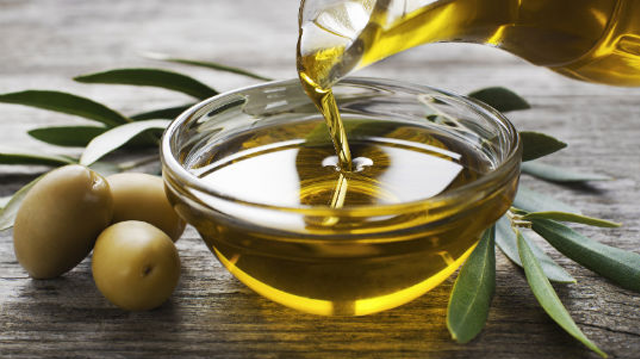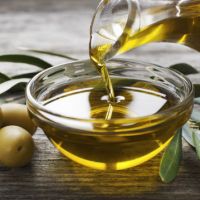
When the heart and health benefits of the Mediterranean Diet became well-known about ten years ago, people began to buy its perceived star, olive oil, in droves. Besides the fact that it tastes great, this oil was also publicized as being able to reduce the risk of heart disease, lower cholesterol levels, and regulate blood sugar.
While all of these reported benefits of 100% extra virgin olive oil are legitimate, you may not be getting them from your bottle at home. Why? Unfortunately, the olive oil industry is one of the most corrupt in food history. Its corruption has reportedly dated back to the 24th century BC, and recent research and journalism has shown that contamination and mislabeling are just as common now as ever.
A 2012 study by UC Davis, for example, showed that around 70 percent of olive oils tested were not the real thing. In fact, many of them contained cheaper, unhealthier, and highly refined oils as fillers.
Then in 2013, a book by Tom Mueller entitled Extra Virginity: the Sublime and Scandalous World of Olive Oil revealed even more worrying details about the corrupt nature of Italy’s olive oil industry and how sellers use cheaper, lower grade oils, artificial colors and flavors to fool consumers. Scary stuff.
Ensuring your olive oil is real
Unfortunately, there’s no fool-proof way of knowing that the oil you’re using is really ‘extra virgin,’ that is, coming from the first ‘pressing’ of the fruit, other than knowing your farmer and learning exactly how the oil is processed. However, there are some signs you can look for if you want to purchase more authentic olive oil, and avoid the fake stuff.
Here’s what you need to know:
Notice how it’s bottled. Olive oil should be kept in dark, colored glass that protects the oil from UV light—not clear glass or plastic. Even better, buy from a local supplier who stores the oil in a temperature controlled, stainless steel container, and bottles it as they sell it.
Buy ‘extra virgin.’ Although the ‘extra virgin’ label is no guarantee that you’re getting the real deal, anything labeled ‘pure,’ ‘light,’ or only ‘olive oil,’ has definitely been refined.
 Read the label. First, look for dates. Check the expiry date, but more importantly, check the harvest date. If there’s no harvest date, the oil could be years old—or not really olive oil.
Read the label. First, look for dates. Check the expiry date, but more importantly, check the harvest date. If there’s no harvest date, the oil could be years old—or not really olive oil.
Next, look for details about where the olives are grown and how the oil is processed. The more information provided about the region, grower, and type of olives used, the more likely it is to be the real thing.
Choose Californian over European. Many people think the best, most authentic oils come from places like Italy, Greece, and Spain. In fact, the UC Davis study showed that Californian oils were far less likely to be contaminated, because The California Olive Oil Council is stricter than the international council.
Be willing to spend more. Growing and producing quality olive oil is expensive. That’s why so many suppliers contaminate their products—to make it cheaper for both them and the consumer. Although price of the oil is no guarantee of its quality, if you choose the cheapest bottle at the store, you’ll probably get what you pay for.
Additionally, Tom Mueller has an excellent list of reasonably priced olive oil brands that are the real deal on his website.
-The Alternative Daily
Sources:
http://www.truthinoliveoil.com/2012/09/toms-supermarket-picks-quality-oils-good-prices
http://www.theguardian.com/lifeandstyle/2012/jan/04/olive-oil-real-thing
https://www.thealternativedaily.com/11-new-ways-use-olive-oil
http://www.foodrenegade.com/your-extravirgin-olive-oil-fake

